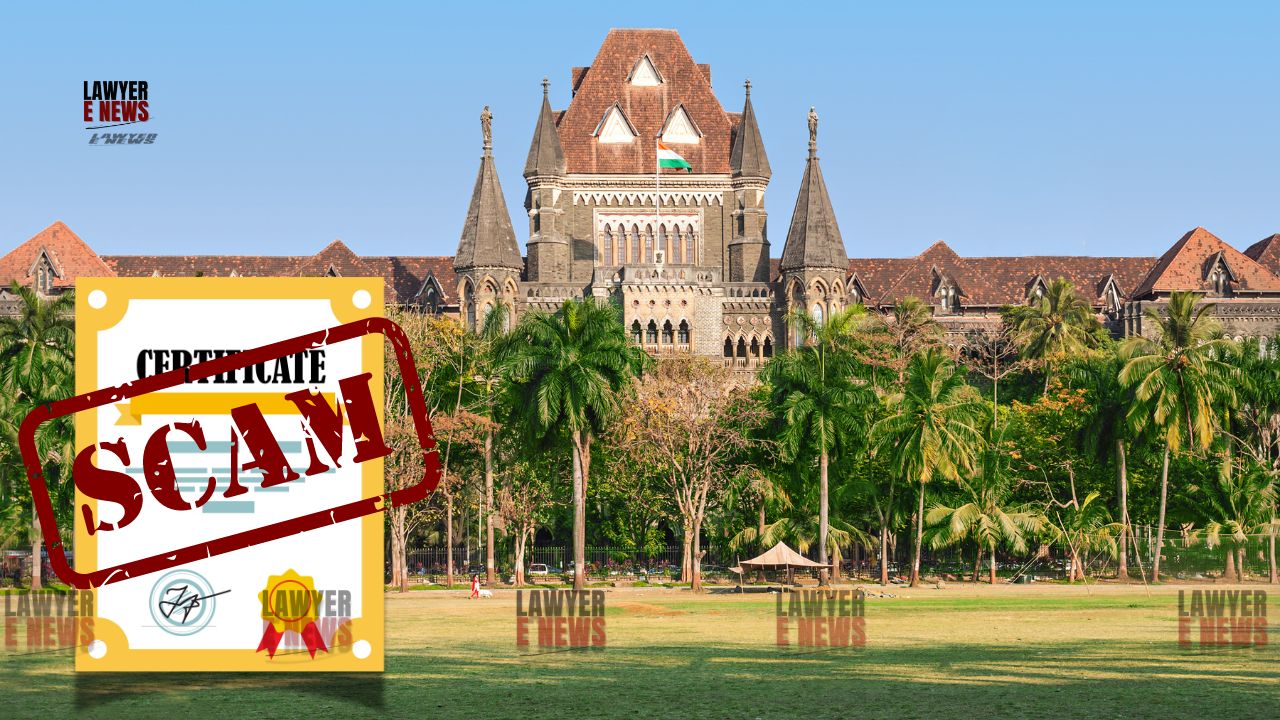-
by Admin
15 February 2026 5:01 PM



The Bombay High Court has dismissed a writ petition challenging the decision of a scrutiny committee to cancel a caste certificate, which had been fraudulently obtained by the petitioner. The judgment, delivered by a bench comprising Justices M.S. Sonak and Kamal Khata, underscores the importance of thorough evidence review and the critical role of the scrutiny committee in maintaining the integrity of caste certification processes.
The case involved Pooja Manish Shah, who sought to challenge the cancellation of her caste certificate by the scrutiny committee on January 16, 2003. Shah had allegedly assumed the identity of a deceased individual to fraudulently secure the benefits of the ‘Reserved Category’. The scrutiny committee’s investigation revealed significant discrepancies, leading to the cancellation of her caste certificate and recommending legal action against Shah and other involved parties. Shah contested this decision, arguing that the committee’s findings were unsubstantiated and influenced by rival political interests.
The court meticulously reviewed the evidence presented, including the scrutiny committee’s detailed report. Justice Kamal Khata, delivering the judgment, stated, “We do not find any perversity or omission in the consideration of pertinent documents or aspects of the matter by the scrutiny committee.” The court emphasized that the scrutiny committee’s report was comprehensive and well-substantiated, leaving no room for doubt about its findings.
The court also addressed the contradictory statements from Shah’s family members. Justice Khata noted, “The contradiction observed in the statements of the parents and the brother regarding the injury sustained by the petitioner casts doubt on their credibility.” The court found the family testimonies unreliable and insufficient to overturn the scrutiny committee’s decision.
In discussing the principles of judicial review, the court cited the Supreme Court’s judgment in Madhuri Patil vs Commr., Tribal Development, underscoring the limited scope of judicial interference in findings of fact by statutory committees. “The High Court is not a court of appeal to appreciate the evidence. The Committee which is empowered to evaluate the evidence placed before it ought to prevail unless found vitiated by judicial review,” the court observed, affirming the scrutiny committee’s authority and decision.
Justice Khata remarked, “We see no reason to disbelieve the death certificates and the scrutiny committee’s reports solely based on the statements from the Petitioner’s parents and brother.” This highlights the court’s stance on the credibility and sufficiency of the documentary evidence over personal testimonies.
The Bombay High Court’s dismissal of the petition reinforces the judiciary’s commitment to upholding the integrity of the caste certification process. By affirming the scrutiny committee’s decision, the judgment sends a strong message about the importance of credible evidence and thorough investigations in cases of identity fraud and misuse of reserved category benefits. This decision is expected to have significant implications for future cases, emphasizing the need for authenticity and integrity in obtaining caste certificates.
Date of Decision: 2nd August 2024
Pooja M Shah v. Municipal Corporation for Greater Mumbai & Ors
